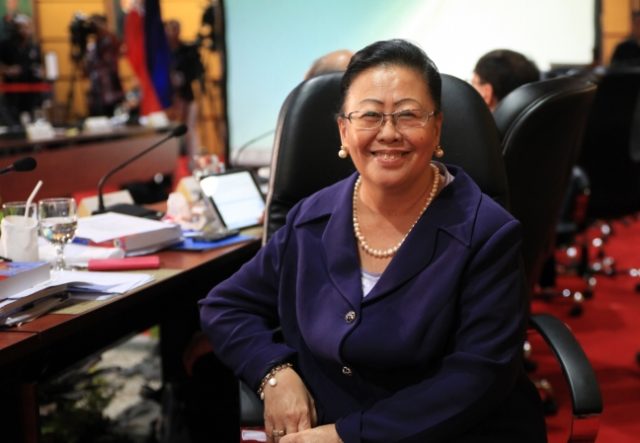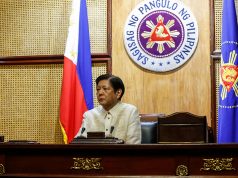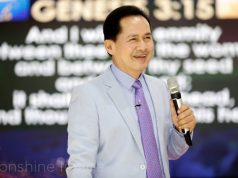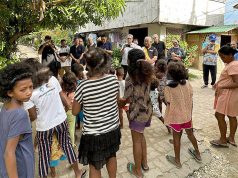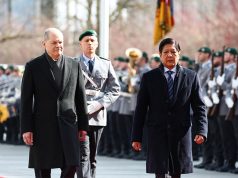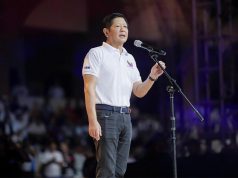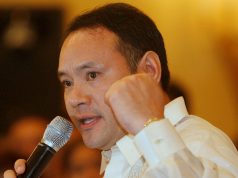Where is the representation at Concom for the other half of the population?
This was the question raised on social media Tuesday, as photos of the male-dominated Consultative Committee tasked to review the 1987 Constitution surfaced from reporters covering the deliberations at the Philippine International Convention Center in Pasay City.
The 20-member Concom met to decide on the form of federal government that they would recommend to President Rodrigo Duterte, ultimately deciding on the familiar presidential form of government over semi-presidential and parliamentary.
The lone woman in the roster is Susan Ubalde-Ordinario, a Catanduanes-based lawyer who worked with the government for 20 years, including 10 at the House of Representatives Secretariat.
“I have been involved in the charter change movement since the 1990s, when I was with the office of Speaker (Jose) de Venecia. We were working on the proposals together with Atty. (Raul) Lambino, and the likes of Dean (Jose) Abueva.
“We were going around the country, soliciting the opinion of people, and generally orienting them regarding charter change. However, to my mind, and this is my personal opinion, those proposals never came to fruition because there was insufficient trust from the people on the leadership,” Ordinario told InterAksyon.
“There was always that perception that charter change is for purposes of extending terms, and considering that the people had been burned already by Martial Law, and all of these things, they were not ready to go for an amendment of the charter,” she said.
In 2004, she resigned from Congress and went into private law practice full-time, which she continues to do today. It was here that she realized just how many problems there are in the judicial system.
“This is classic in the case of Hubert Webb,” Ordinario recalled. “He lost 15 years of his life because he was incarcerated, only to be later acquitted of the crime. The sad part of that is that, due to the length of time, the victims also lost their chance to claim justice because they didn’t find out who was supposed to be responsible.”
In 2008, Abueva, together with Volunteers Against Crime and Corruption founding chairperson Dante Jimenez, journalist Chit Pedrosa, and Atty. Leonard de Vera, visited Catanduanes to solicit opinions regarding a possible shift to federalism. Ordinario was asked to be a reactor, and from then on, she became “deeply involved” in crafting a proposal for an autonomous government for the Bicol Region. They came up with a draft charter, all the while building relationships with allies from other regions who were also entertaining the idea of autonomy.
Jimenez met then Davao City Mayor Rodrigo Duterte in 2014, and the latter made a trip to Bicol to talk to Ordinario and others about their aspirations for autonomy. It was here that Duterte urged them to go for a federal government, instead.
“That started the listening tour of the President. So we found our champion,” Ordinario said, noting that when they wrote Congress earlier, “nobody took a bite”.
The group drew supporters to join their advocacy, and in 2016, Duterte was elected president. The latter told Jimenez of plans to create a Concom to review the 1987 Constitution, which would have to be changed so the switch to federalism would be accomplished. Jimenez then asked Ordinario if she would be open to take a slot in the committee.
“I said I am actually hesitant because I have a very, very busy practice. I am only one of three or four actively practicing lawyers in Catanduanes and I know if I’m involved in something like this, if it takes more than a year of work, I will be neglecting my clients and I will be depriving my province of one more lawyer,” she said.
But her fellow federalists from Bicol were counting on her. Finally, Duterte named the Concom members in January.
“In October, Dante was already asking me if I could also recommend some other women,” Ordinario revealed. The trouble was, the ones she knew were “either judges, fiscals, or somehow in government decisions which they will not want to vacate just for six months to a year of work.”
She continued, “I thought they were able to find some (other women), but I never knew anymore, until the list came out.”
Asked if the fact that she is the only female member should be cause for concern, she replied, “In fact, I was telling my group in Bicol that I really feel alone. I feel that we should have at least another five women… Considering that there are more women than men, actually. We have so much contribution to society.”
“We’re still hoping that the President will take that concern seriously,” she added. “In fact, there are also other concerns like the IPs (indigenous peoples) are underrepresented. But we still have time, and hopefully we will have additional members.”
Naturally, she will be pushing for women’s rights in the Concom. “I have no choice.”
“We have to protect the ability of women to access opportunities for professional and personal growth. Because being women, we bear children, we take care of them, there’s a traditional concept of us as homemakers.
“So even in finding a job it becomes difficult because we have to balance it between professional advancement and family concerns,” she explained.
“I went through that. When I was bearing children, I decided to leave work ’cause I have to take care of my kids. I needed to be there for them. It was only after my eldest graduated from high school that I was able to decide to enter law school. So I went to law school at a pretty late age and became a lawyer when I was already 49 years old. I entered law school at the age of 43.”
She has almost 50 cases pending in her private practice back in Catanduanes.
“In Catanduanes we do not have specializations because… much of the time, it’s only three of us… We cannot handle everything. So the people have to get lawyers from outside of Catanduanes, which is very, very expensive. And the people there are not rich,” she said. “I just told my clients that I will have to desist from accepting new cases because, as it is, my present case load is already heavy.”
She hopes to return from Manila by Holy Week. Meanwhile, she is constantly e-mailing her secretary in Catanduanes so she can still work on her cases while lending her voice to the Concom.
In the coming weeks, the public can expect Ordinario to discuss the constitutional provisions on the family, “a very ticklish issue now, because there are hankerings for equal rights, meaning to say regardless of their gender orientation.”
“In fact, we are trying to get the position of the Catholic Church on matters like same-sex marriage. There’s already a case pending before the Supreme Court on this very same thing,” Ordinario said. Issues on adoption and dissolution of marriage will also be tackled.
“These are the things we have to take into consideration in drafting the Constitution so that we will be able to respond to the various concerns,” she said. “I have (also) been tasked as the vice-chairman for the leveling of political field, which specifically includes the issue on political dynasty.”
Asked if there should be representation in the Concom for the LGBT (lesbian, gay, bisexual, and transgender) community, Ordinario replied, “If the President so desires, I think it will also be good. Just as it would be good for him to increase more women in the group, and IPs.”
“I just want to help out in the crafting of a federal government,” she added.

